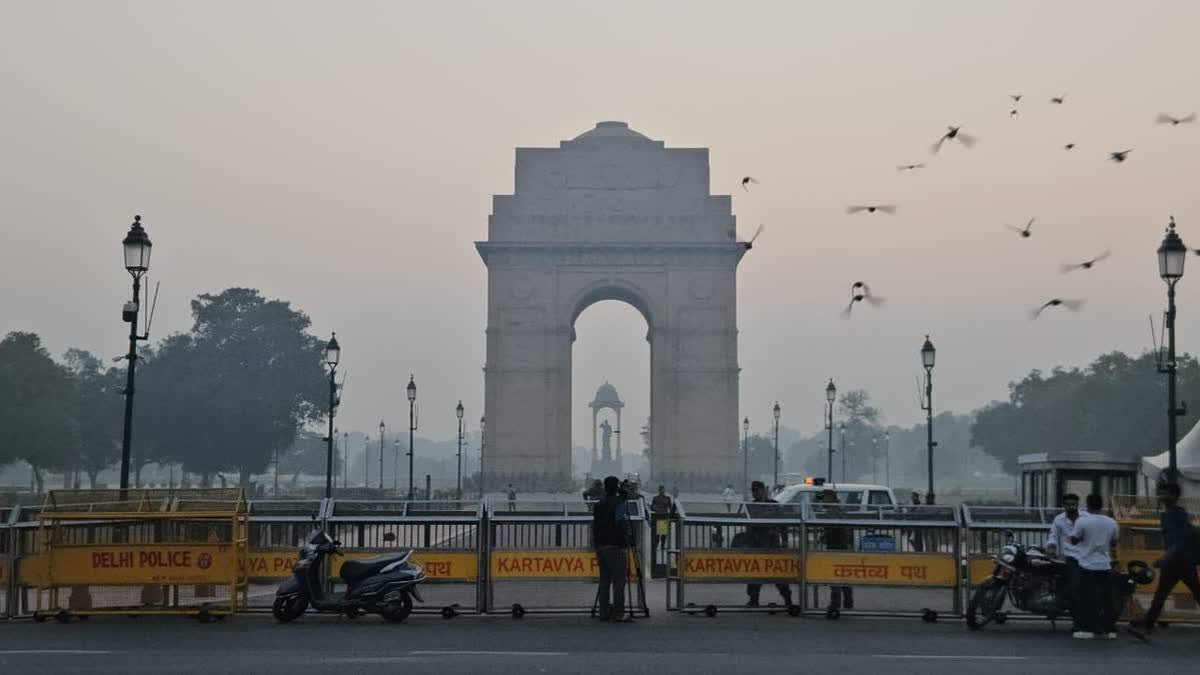New Delhi: To tackle the rising air pollution in the National Capital Region (NCR), Dr Sujit Kumar Bajpayee, a Member of the Commission for Air Quality Management (CAQM), chaired a critical review meeting today to assess the implementation of the Graded Response Action Plan (GRAP). With the winter season approaching, a period marked by a sharp deterioration in air quality, the meeting highlighted the need for rigorous enforcement of GRAP measures at all stages.
Focus on GRAP Implementation During Winter
The meeting underscored the importance of implementing GRAP measures in “true letter and spirit,”, particularly during the winter months when pollution levels peak due to unfavourable weather conditions. The review included a detailed analysis of daily action reports submitted by NCR states through the GRAP Monitoring Control Room.
Stage III of GRAP, invoked on November 15, 2024, was a focal point of the discussion. This stage builds on measures from Stage I (initiated on October 15) and Stage II (enforced on October 22). Revised GRAP guidelines, available on the CAQM website, were reiterated as a critical reference for all enforcement agencies.
Key Highlights and Issues Addressed
A comprehensive presentation during the meeting identified several issues and action points, including:
Construction and Demolition (C&D) Activities: Non-compliance with dust control measures at C&D sites remains a significant concern.
Strong actions, including the levying of Environmental Compensation (EC) and site closures, were recommended for non-compliant units. Uniform inspection and enforcement protocols across NCR states were emphasised.
Mechanical Road Sweeping Machines (MRSMs): The immediate augmentation of MRSMs was deemed essential to curb dust emissions.
Vehicular Pollution: Traffic police and transport departments were directed to intensify checks for Pollution Under Control (PUC) certificates and impound End-of-Life (EoL) vehicles.
Grievance Redressal: The resolution of complaints through apps and social media platforms, including X (formerly Twitter), was found lacking. NCR states were instructed to resolve all pending grievances within a week and tag CAQM for effective tracking.
Actionable Directives Issued by CAQM
After detailed discussions, Dr Bajpayee issued several directives to the implementing authorities to ensure the effectiveness of GRAP measures
Enforcement of GRAP Measures: All prescribed actions under GRAP, especially those outlined in Stage III, must be enforced rigorously.
Focus on Hotspots: Special attention is to be given to pollution hotspots across NCR. The Delhi government’s action plan for hotspots, presented in a meeting on November 8, 2024, was highlighted as a model to be prioritised.
Complaint Resolution: All pending complaints from citizens must be addressed within a week. Additionally, CAQM should be tagged on social media when complaints are resolved to ensure proper tracking and accountability.
Coordination Among Agencies: Nodal officers were directed to streamline actions within their agencies. State Pollution Control Boards (SPCBs) and the Delhi Pollution Control Committee (DPCC) were tasked with monitoring and ensuring compliance.
Daily Reporting: Implementing agencies are required to submit daily reports on actions taken under GRAP Stage III in a prescribed format.
Accountability for Non-Compliance: Officials found lax in enforcing GRAP measures will be held accountable and may face action under the provisions of the CAQM Act.
A Collaborative Effort to Combat Pollution
The meeting reinforced the urgency of collective action to address NCR’s pollution crisis. With air quality expected to worsen during the winter, strict compliance with GRAP measures is essential to mitigate the health risks posed by rising pollution levels.
The CAQM also reiterated its commitment to monitoring the situation closely and taking corrective actions as needed. As enforcement agencies ramp up efforts, public cooperation in adhering to pollution control measures will play a crucial role in improving air quality in the region.
The review meeting served as a critical reminder of the persistent challenges in managing NCR’s air pollution. While GRAP provides a structured approach, its success hinges on coordinated efforts, strict enforcement and timely action by all stakeholders. With winter approaching, the onus lies on authorities and citizens alike to combat the alarming pollution levels and safeguard public health.



